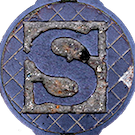Discourse Modeling: Difference between revisions
m (added workshop goals) |
m (→Workshop Goals) |
||
| Line 63: | Line 63: | ||
## prototype naming conventions | ## prototype naming conventions | ||
# Create a few example Discourse Graphs, drawing on content and conversations generated during the workshop | # Create a few example Discourse Graphs, drawing on content and conversations generated during the workshop | ||
# Make the Discourse Graphs queryable through the Semantic Mediawiki SPARQL endpoint | # Make the Discourse Graphs contained on the wiki visualizable and queryable through the Semantic Mediawiki SPARQL endpoint | ||
# Document our process and create a guide to making wiki-supported Discourse Graphs | # Document our process and create a guide to making wiki-supported Discourse Graphs | ||
Revision as of 11:03, 13 November 2022
| Discourse Modeling | |
|---|---|
| Description | Implement Discourse Graph schema in Semantic MediaWiki. Query Discourse Graph contents through SMW sparql endpoint. Visualize and publish Discourse Graph contents. |
| Related Topics | Discourse Graphs, SPARQL |
| Projects | Federated knowledge synthesis, Making Discourse Graphs Indexable & Discoverable |
| Discord Channel | #discourse-modeling |
| Facilitator | Karola Kirsanow |
| Members | Kyle MacLaury, Sam Klein, Konrad Hinsen, Karola Kirsanow, Peter Murray-Rust |
What are we discussing?
It could be really valuable to try to prototype a "computable" synthesis of the knowledge in this workshop here in the wiki. One test of the "computability" would be to make it visualizable.
Could have applications to the semantic climate setting that Peter Murray-Rust is working on.
Now you're playing with templates
- {{ Source}} template : URL, publisher, publisher-url, date, author, title
Sj, 2022-11-12. Discourse modeling templates. Synthesis Infrastructures wiki.
- Claim :
- Axiom (?) :
Potential Actions
- Implement the Discourse Graph schema within the workshop's Semantic MediaWiki instance
- Making Discourse Graphs Indexable & Discoverable is a sub-project relevant to this group
- Incorporate models/algorithms into Semantic MediaWiki
- Access discourse and knowledge representations in the SMW instance
- Compute with the returned data
- potentially using models/algorithms from the wiki
- Visualize the results of the computation
- Publish the visualizations back to the SMW instance
- Assess suitability of Discourse Graphs for federation (Federated Knowledge Synthesis)
Modules
Technical aspects of the project
- Semantic MediaWiki
- Front End
- Embed CloudObjects from Wolfram Cloud
- User chooses model and specifies input parameters
- User applies model to input parameters
- Call API that executes
- rdf database
- SPARQL endpoint
- Front End
- Wolfram Cloud
- Use SPARQLExecute to call the SPARQL endpoint
- Apply Model to query results
- Publish visualizations as CloudObjects
- Publish API that executes model/algorithm
Workshop Goals
- Implement the Discourse Graph schema within the workshop's Semantic MediaWiki instance
- create templates for nodes
- understand how to type relationships
- prototype naming conventions
- Create a few example Discourse Graphs, drawing on content and conversations generated during the workshop
- Make the Discourse Graphs contained on the wiki visualizable and queryable through the Semantic Mediawiki SPARQL endpoint
- Document our process and create a guide to making wiki-supported Discourse Graphs
Example Discourse
Why do we expect increased concentrations of atmospheric carbon dioxide to change the climate?
Example Discourse Graphs
- Joel Chan's working notes
- CIViC (Clinical Interpretation of Variance in Cancer]
Discord
we think the problem now is user-friendly tools and workfows that can create discourse graph structures, and have seen some exciting progress across a bunch of new user-facing "personal wikis". but bridging from personal to communal is still a challenge, partially bc of tooling.
this is why i'm excited about the Discourse Modeling idea, which i sort of understand as a way to try to instantiate something like Discourse Graphs into a wiki (bc wikis have a lot more in-built affordances for collaboration, such as edit histories, talk pages, etc.), which may hopefully lead to a lower barrier to entry for collaborative discourse graphing.
a high hope is that we can develop a process that is easy enough to understand and implement that can then be applied to discourse graphing the IPCC or similarly large body of research on a focused, contentious, interdisciplinary topic.
other examples include: - effects of masks on community transmission (can't do decisive RCTs, need to synthesize) - effects of social media on political (dys)function: (existing crowdsourced lit review here, in traditional narrative form: https://docs.google.com/document/d/1vVAtMCQnz8WVxtSNQev_e1cGmY9rnY96ecYuAj6C548/edit#)
